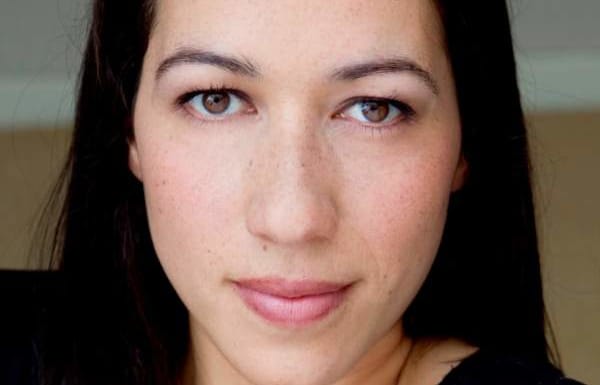Kahurangi Carter's career in theatre and film stretches back a decade and her latest work is the one-woman show Aroha is A Māori .
Carter’s sister Amaria Connell has taken up the role of director and in preparing for the show the pair got together in the Christchurch library to cull Carter’s 10,000-word script down to 4000 words.
“We had to get a little bit of outside perspective because of course we know we’re funny, it’s a comedy of course, we thought we were hilarious and we had a lot of fun writing it in fits of laughter.”

Kahurangi Carter Photo: Kahurangi Carter
Aroha is a Māori is loosely based on their upbringing as Māori girls growing up on Auckland’s North Shore and going to a Catholic girl’s school. It's a comedy, but it poses a pretty sad question to even ask - How Māori do you have to be to be a Māori ?
“We had people who didn’t grow up on the North Shore and grew up in indigenous areas, absolutely relate to it, even going into a either a Pākehā world or a Māori world, say it was a university…one of the ideas around having to change yourself to fit into a scenario to fit into a box, to make it easier for other people to understand you.”
It’s an experience Carter has had, but not one that she thought was so common. “Something that came out of the show was definitely this feeling that we actually all have the power to be a little bit more culturally conscious, whatever that means to you.”
She says if you’re in an environment where you don’t feel very comfortable or don’t know the etiquette you should observe those around you.
An example of this is on a marae. “Often we’ll like to ask, what do I need to do, where do I need to go, and get a bit of instruction there but if you went into a church, you wouldn’t walk in and be really loud… you would be able to actually go into that space, just take a moment and probably be able to pick up on cues from other people who are there.
Carter says we could all just believe in our connection as people.
“The other day, my son and I, he’s 11, we were at a restaurant having dumplings – delicious - there was only chopsticks on the table and he wanted to try them, and he was getting frustrated. The owner of the restaurant came over to him and she couldn’t speak English, but she was teaching him and showing him because she saw that he was trying.”
Even if you get something a little bit wrong, the fact that you’re showing respect goes a long way, she says. “Consciousness and goodwill would take you a long way.”
Aroha is a Māori is part of the Matariki season at the Basement Theatre, Carter says because of this she wanted to bring themes of self-discovery and cultural consciousness to the show (in a very comedic way). “Aroha is quite outrageous, she’s quite a preppy character and maybe not what you think when you hear Aroha is a Māori.”
The second half of the show is a panel discussion, the speakers aren’t prepped, they just respond to the show.
“Things as simple as someone saying your name correctly, or even trying to say your name correctly, came up and feeling like you had to fit into a certain mould for people to understand you. I mean we’re all multifaceted…we aren’t just one thing.”
As well as being an artist Carter works at a bank but her name tag at the bank has a shortened version of her name. “That’s a way of not really giving people a chance to try, we’re not actually believing in the people around, I really do believe in people and I believe in our power to educate ourselves and level up.”
When she was growing up, Carter shortened her double barrel last name, she says she didn’t realise how much she was changing herself or trying to dumb herself down to fit in. When she went to university she took Māori studies but again felt she didn’t fit in.
“I was always searching for a way to connect to my Māori side, but I found that connection within myself and within my own family and being in the bush and in the ocean.”
She felt it was important to begin learning te reo when her children were born and she and her Pākehā husband decided to send the kids to kōhanga reo and kura kaupapa. “That’s where I started to realise that yeah, I wanted to tell these stories.”
Carter recognises the privileges afforded to her because of how she speaks, her education and where she’s from. “Maybe because I am more palatable to certain people who haven’t got a lot of cultural diversity in their lives, it has been easier for me in some ways to tell my story and get the message out there.”

